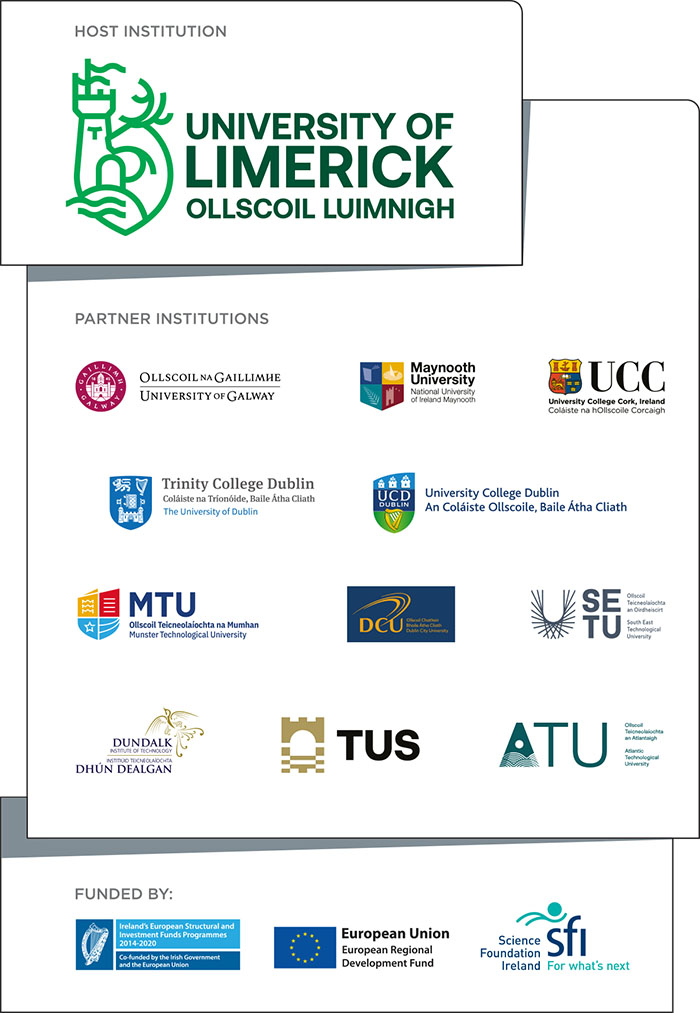Irish developed software application to help shatter academic glass ceiling
You are here
Less than 20% of professors in Ireland are female

A new software application, designed to help break the glass ceiling in academia globally, will be formally launched at the University of Limerick (UL) tomorrow (Thursday 12th).
The application was developed by Lero, the Irish Software Research Centre, as part of an EU funded gender equality project. FESTA (Female Empowerment in Science & Technology Academia) received EU funding of €4.3m of which €730,000 is allocated to UL. The software application – The FESTA Strategic Career Manager - has been developed at the University of Limerick (UL) in collaboration with six international universities.
“Less than 20% of professors in Ireland are female and less than 21% in Europe,” commented Professor Ita Richardson, Lero researcher at the University of Limerick. “There is clearly a serious gender equality issue which has been recognised by the EU.”
Professor Pat O’Connor, who led the FESTA project in UL, added, “The FESTA Strategic Career Manager will be available globally and it will be particularly important in supporting women at the critical early stages of their careers.”
Following detailed research of the career paths of over 100 female and male academics across Ireland, Denmark, Bulgaria and Turkey, FESTA research has identified 39 potential barriers to gender equality in academia.
Dr Clare O’Hagan, FESTA Project Manager at the University of Limerick led the development of workshops and training programmes which, combined with the software application, are designed to assist female academics progress their careers and break through the academic “glass ceiling”.
The training modules cover a range of career related issues. These range from developing a publication strategy and academic networking to enhancing their visibility, honing their negotiation skills and leveraging family support. The modules have been developed with input from a range of disciplines including science, engineering, sociology, gender studies, HR and behavioural science.
“There has been a serious historic gender bias across science not just in terms of promotion but even in the development of technology itself,” said Professor Richardson of Lero. “For example, seatbelts were originally designed for male bodies not female. Research into heart attack symptoms were male focussed not female.”
She added, “We will be seeking funding to commercialise the FESTA Strategic Career Manager as this software application has huge potential for female academics across the globe.”
Professor O’Connor said, “It is significant that the University of Limerick was selected a FESTA partner as 31% of those at professorial level in UL are women, compared to the national average of 19%.”
She added, “The programme complements the work of Athena SWAN for which UL received a Bronze Award in 2015. This charter helps to combat the under representation of women and to advance the careers of women in science, technology, engineering, mathematics and medicine (STEMM) roles within the higher education and research sectors.”
UL collaborated on the FESTA project with Coordinator Uppsala University Sweden; University of Southern Denmark, Denmark; RWTH Aachen University, Germany; Fondazione Bruno Kessler, Italy; Istanbul Teknik Universitesi, Turkey and South-West University, Bulgaria.
Photo Caption: Climbing the academic ladder. Pictured outside Lero – the Irish Software Research Centre at the University of Limerick (UL) at the announcement of the FESTA (Female Empowerment in Science & Technology Academia) programme were (from left): Professor Ita Richardson, Lero researcher at the University of Limerick; Professor Mike Hinchey, director, Lero; Professor Pat O’Connor, head of FESTA project, UL and Dr Clare O’Hagan, research fellow, FESTA. PHOTOGRAPH: Sean Curtin FusionShooters




